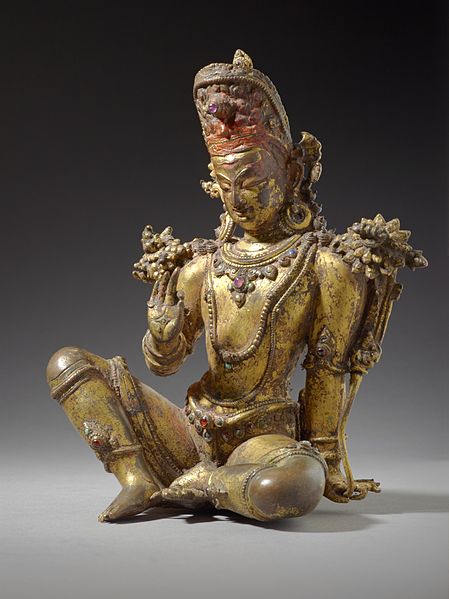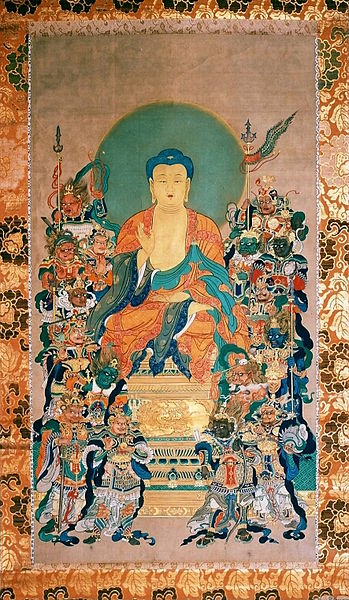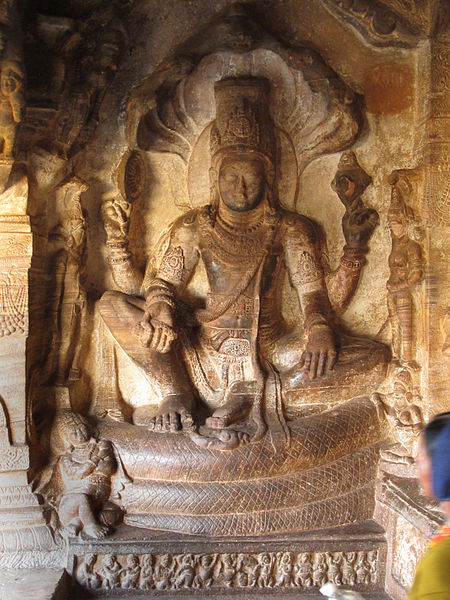Dhanvantari is the physician of the devas in Hinduism. He is regarded as an avatar of Vishnu. He is mentioned in the Puranas as the god of Ayurveda.
Murti of Dhanvantari
Painting of Dhanvantari.
Statue of Dhanvantari at Tarakeshwar temple
Dhanvantari at Ayurved Sankul Anand, which is a premier institute of Ayurveda situated in the Milk City of India, Anand, Gujarat.
Deva means "shiny", "exalted", "heavenly being", "divine being", "anything of excellence", and is also one of the Sanskrit terms used to indicate a deity in Hinduism. Deva is a masculine term; the feminine equivalent is Devi. The word is a cognate with Latin deus ("god") and Greek Zeus.
In the earliest Vedic literature, Devas are benevolent supernatural beings; above, a gilt-copper statue of Indra, "Chief of the Gods", from 16th-century Nepal.
Shiva/Rudra has been a major Deva in Hinduism since the Vedic times. Above is a meditating statue of him in the Himalayas with Hindus offering prayers.
The 12 Devas protecting Buddha, by Tani Bunchō. The Hindu Devas were adopted by Japanese Buddhists in the first millennium as Jūni-ten
Vishnu (above) is one of the Vedic Devas. The third Valli of the Katha Upanishad discusses ethical duties of man through the parable of the chariot as a means to realize the state of Vishnu, one with Self-knowledge.








